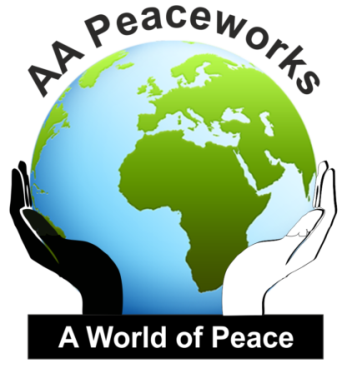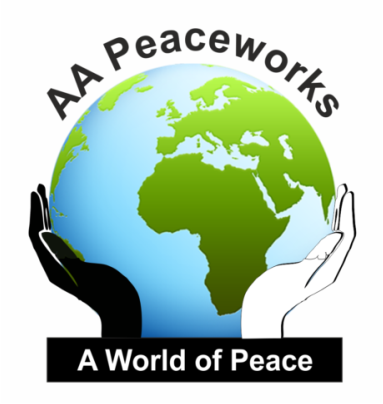Nonviolent Election Activities. 2003- 2019
Early election work in Karu
Elections are always a conflict-prone period in Nigeria. Many civil society groups simply observe and report on elections as they happen. However, Academic Associates PeaceWorks decided decades ago that it is necessary to take preventive action before the election, mitigative action during the actual elections and reconciliation efforts after the event.
By 2003 we had formed Peace Committees in all of the communities in Karu Local Government in Nasarawa State, on the eastern flank of Abuja, the new Federal Capital Territory. Leading up to the national elections, we trained community representatives as election observers. We also had trained hundreds of police men and women in 2 national workshops, held in Lagos and Abuja. Luckily for us, the District Police Officer of Karu LG was one of those trained. Therefore, during the election, we were in constant communication with the DPO and his team about any polling unit without police protection, any budding signs of violence, etc. We simply phoned him and he mobilized his people to the spot.
Another fortunate connection was the Secretary of the Independent National Electoral Commission, with whom the ED had worked when he was in the office of the Secretary to the Government of the Federation. Dr. Hakeem Baba Ahmed proved very helpful in a potentially explosive situation in Mararaba during the first election of the cycle. Mararaba is a predominantly Muslim suburb of Abuja and in going round the polling units, we came across several adjacent units where a number of voters could not find their names on the register. We studied the cards of numerous voters and found that 2 numbers on each card had been reversed by the person who did the registration. It was a simple error that had been repeated many times. However, most of the people wrongly registered were Christian- in a highly Muslim area- and mainly Igbos. Tensions were rising, with shouting, shaking of fists and assumptions of purposeful disenfranchisement. We jumped into the fray and calmed the voters with the promise that we would meet with INEC and sort out the problem before the national election the following week. We took the problem to the Secretary of INEC, who did indeed sort out the problem by issuing correct cards to the affected voters. And peaceful elections were held the following week. It is our belief that creating nonviolent elections involves coming up with creative solutions and thinking out of the box, not mere election observation.
Nonviolent Elections in the Niger Delta
As we worked increasingly in the Niger Delta, where elections are usually very high stake events, we consolidated our Peace Committees into a Community Stakeholders Network model that includes a wide variety of people who have roles in preventing election violence. Months before the elections we set up the CSN in conflict prone local governments. The CSNs then met weekly until about 2 months after the elections. They did awareness of election issues, made advocacy visits to key players, identified and analyzed early warning signs of election violence and together came up with interventions to reduce the violence.
The key to an effective Community Stakeholders Network is having the right people who can take action, prevent violence and help resolve any remaining conflicts after the election. The 12-15 member CSNs include:
- The King’s representative
- Local government representative
- INEC representative
- Representatives of the major political parties in the area
- Security agencies- Police, DSS, Military
- Religious and civil leaders
- Youth at risk who can cause electoral violence
There was a conscious effort to cut across the spectrum- to include women, mainstream youth, youth-at-risk, urban and rural, richer and poorer, different political orientations. In other words-a mosaic of the local government.
All major ethnic groups should be included. For example, in Warri Southwest we had Ijaw and Itsekiri members; in Warri South it was Itsekiri and Urhobo. Although the Niger Delta is predominately Christian or traditional believers, there are pockets of Muslims. Therefore, the Sapele CSN had a Muslim imam, as did the Port Harcourt CSN. Everyone in the project area should be able to identify with at least one CSN member.
In a period of election volatility, it is important to have very proactive CSN members. In one election project, the District Police Officer in the Uvwie CSN chased ballot box snatchers on foot, caught and arrested them. Most DPOs would not go to such lengths, but as a member of an active CSN, he put in extra effort. Similarly, the Sagbama CSN chairman was a traditional ruler and also a retired naval officer who jumped in a boat and followed some young men trying to steal ballot boxes. He also traveled to the next state to speak on a radio programme about the necessity of citizens protecting their own elections. The combination of him being both a credible traditional ruler and ex-navy made his words very impactful.
In various projects, we did a radio drama series as well as radio discussion programmes. We did massive social media training of people and set up a Facebook group A New Naija, to which people contributed their views of what a new Nigeria should be. We had the Operations Manager of Channels Television come and train media practitioners from the Niger Delta states on social media. Following this we set up our own Situation Room for the Bayelsa election, where our observers from all over the state sent in reports. We then relayed those to a very good contact in INEC for quick action. Our Channels contact also aired these reports in real time. People on the coast and in the creeks commented that it was the first time that elections had really reached the far flung parts of the very riverine state, with people commenting that this was the first time they had ever seen a ballot.
Our initial nonviolent elections work in the Niger Delta in 2007 and 2011 was funded by DFID/UK Aid; later PIND funded nonviolent election projects in the Niger Delta in 2015 and 2019.
The attached table shows the breadth and depth of our work in the 2019 election. We believe that our work on nonviolent elections over the years was very successful because of the wide variety of actors involved and our reach both down to the grassroots and up to the top of society, to people who can intervene to resolve conflict and the underlying issues as illustrated in the diagram below.


